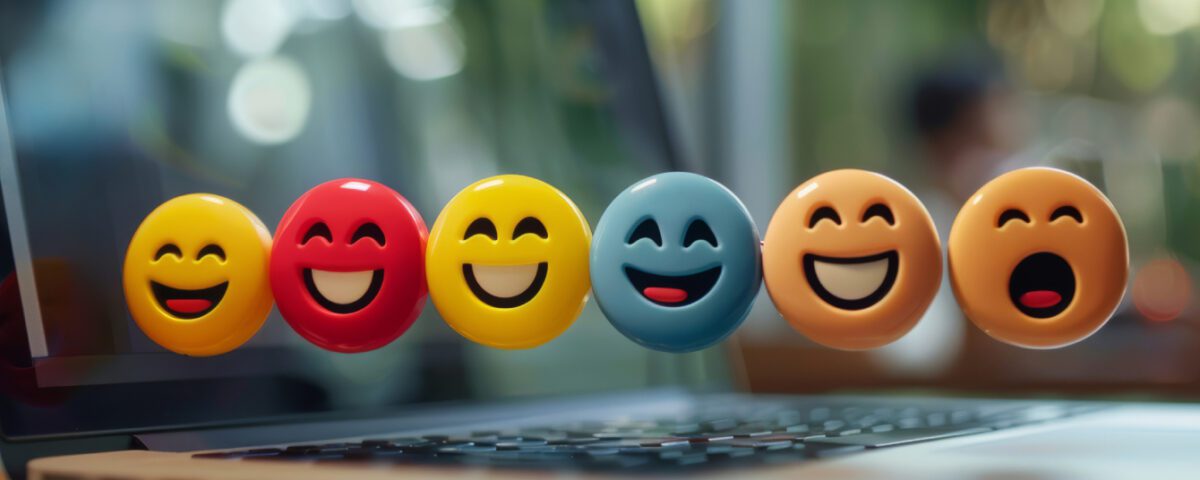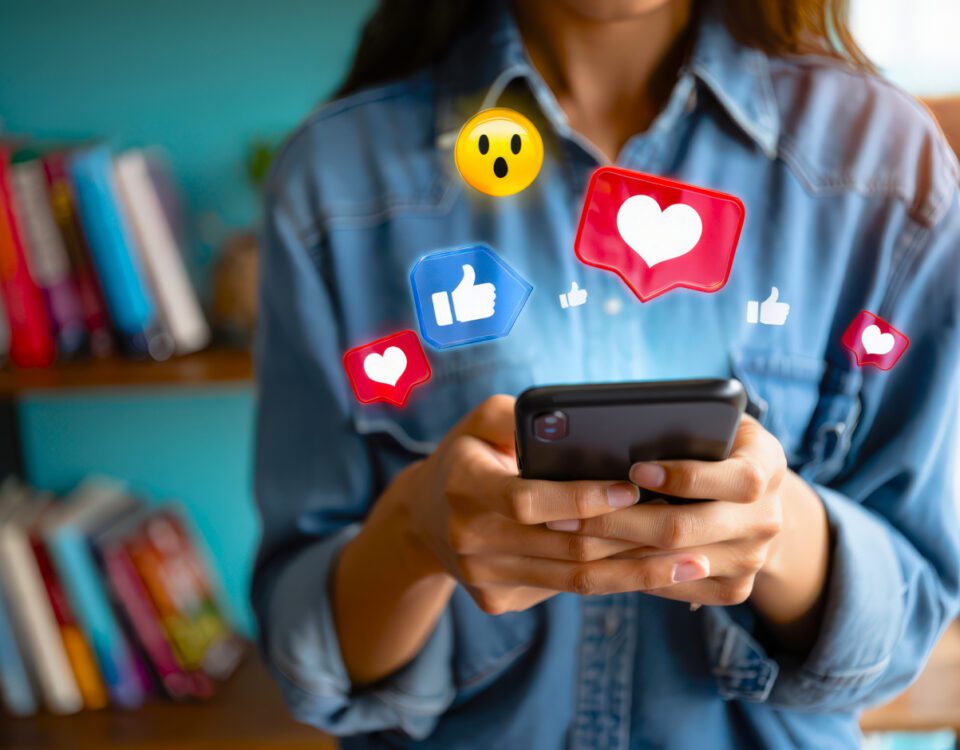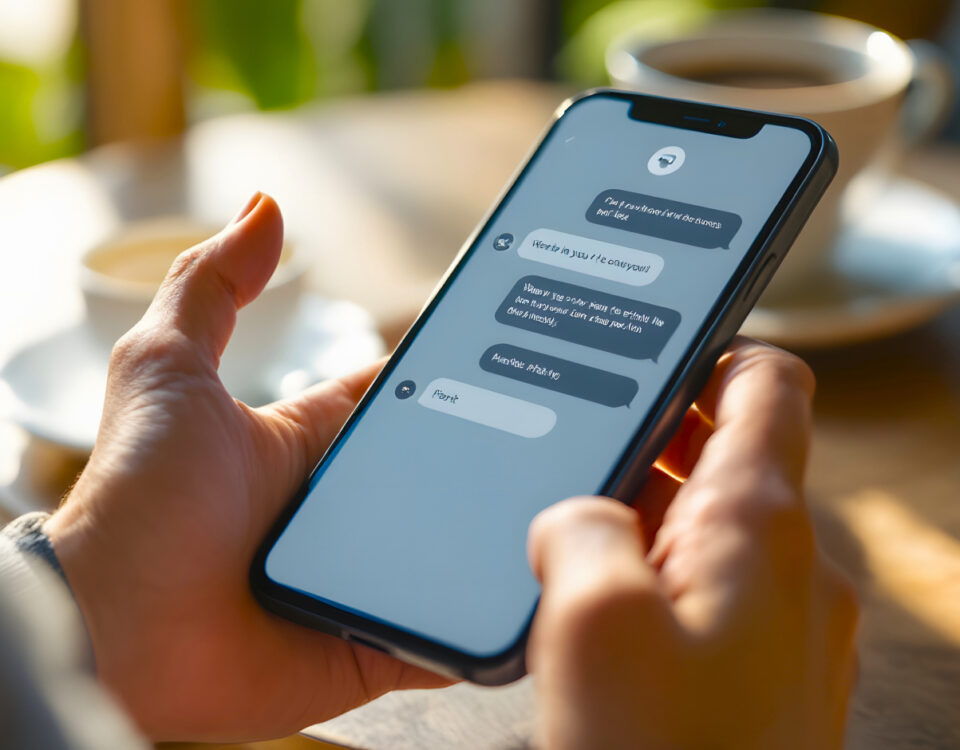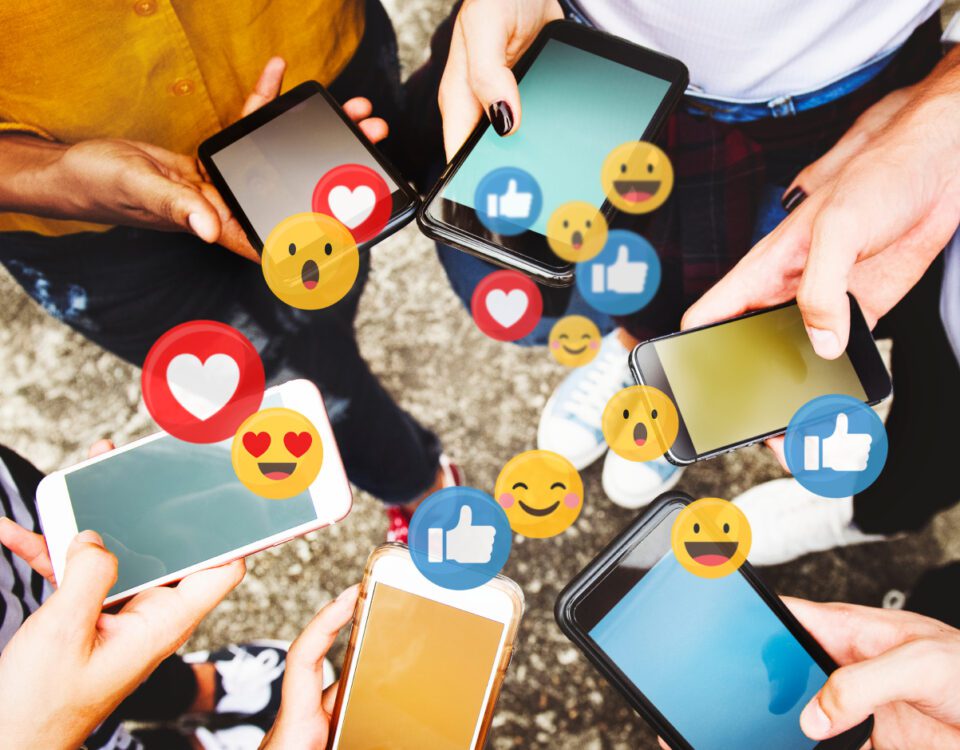Share
There’s an undeniable link between social media and mental health. On one hand, platforms like Facebook, Instagram and TikTok can allow us to connect with friends and family, share photos of our favourite moments, contact brands and learn about topics that interest us - but on the other hand, it can expose us to harmful and misleading content, cause us to compare ourselves to others, make us feel pressured to post, and result in phone addiction. Let’s take a look at some of the ways social media impacts our mental wellbeing and learn how to tackle some of the most common problems.
Limit Your Screen Time
One of the best ways to protect your mental health when using social media is to monitor and limit the amount of time you spend on it. The average screen time spent by users aged 16-64 across media platforms and different devices is a whopping 6 hours and 37 minutes per day and 71% of us check our phones as soon as we wake up, showing just how dependent we’ve become on our screens!
Make use of tools such as the Digital Wellbeing feature on Android or Screen Time Limits on iPhone. You can also set daily time limits on Instagram, TikTok and Facebook that will notify you when you’ve spent a certain amount of time on each app so you can close them when you reach your maximum number of minutes or hours.
If you feel that your screen time is really out of control or that you’re even developing a social media addiction, it may be beneficial to take a complete social media hiatus by deactivating your accounts or removing the apps from your phone for a few weeks or months until you feel ready to return.
Tackling FOMO: Fear of Missing Out
FOMO (fear of missing out) is a big problem on social media, and is experienced by 69% of Gen Z and 70% of Millennials. Whether it’s on a personal level - such as seeing photos and videos of friends at parties, festivals and events - or on a larger scale - such as seeing aspirational content from celebrities, influencers and other people we don’t know in real life - social media can cause us to feel like we’re missing out on things that others are doing or achieving. Scrolling through an endless feed of people going on exciting holidays, trying new foods, buying new things and hanging out with friends can be understandably upsetting if our current circumstances aren’t the same as theirs, and can leave us feeling pressured to fit in.
To tackle this, it’s important to remind ourselves that many people only post their ‘highlight reels’ and best moments online, not their everyday routines - which are probably just as normal as our own! It’s also essential to focus on what we enjoy about our lives and practice gratitude for the things we do have, rather than spending time worrying about the things we don’t.
FOMO can also extend to the pressure of staying informed. It’s great that the internet has allowed us to learn about what’s going on around the world, and of course we shouldn’t be ignorant of current events - but the non-stop cycle of news can be overwhelming and depressing, and we can often find ourselves feeling helpless when we know there’s nothing we can do to assist. Plus, reading negative comments and participating in heated debates regarding social and political issues can leave us feeling angry and frustrated.
To combat this, it’s best to only read news from non-biased sources that state objective facts about what’s going on, rather than opinion pieces and sensationalised stories that are shared solely for inflammatory purposes. Don’t forget that it’s also okay to not know where you stand when it comes to a certain topic, and it’s perfectly fine to choose not to comment on an issue on social media - even if it feels like everyone else is doing so.
Only Follow Accounts That Inspire Positivity
Luckily, today, all major social media platforms give us the power to control what appears on our feeds, meaning we can curate our own experiences and ensure that we only see content that we enjoy and makes us feel good. Unfollow accounts that affect you negatively, block and report trolls, mute words and phrases that cause you distress, and tap ‘I’m not interested’ whenever a platform suggests content to you that you don’t want to see.
Follow people and brands that relate to your personal interests and hobbies so that your feed and ‘For you’ pages become full of positive, relevant content. Seek out accounts that share uplifting mantras, good news and positive affirmations, such as The Happy News or Self Care Is For Everyone. If you’re particularly prone to FOMO, follow people who share their realistic daily routines and down-to-earth experiences that will enable you to find the beauty in the everyday.
Remain Vigilant of ‘Polished’ Photos
When using social media, it’s important to remember that many people share photos that are highly edited to give the impression that they have a perfect appearance or lifestyle. Consuming this kind of unrealistic content on a regular basis can lead to feelings of inadequacy, jealousy and low confidence - in fact, 40% of teenagers say that images on social media have caused them to worry about their body image, and 88% of women in particular say that they compare themselves to images they see on social media.
AI filters and airbrushing apps are becoming more and more sophisticated, and while the technology behind these kinds of tools is undeniably impressive, it’s also having vastly negative impacts on people’s mental health and self-esteem. It’s getting harder to tell what’s real and what’s not, leaving many users wondering why their own faces and bodies don’t look like the ones they see on screen. So, next time you find yourself staring at a photo of a blemish-free model or flawless influencer, remind yourself that what you’re seeing may not be 100% real - and that the people you encounter online may have had some digital assistance in order to look the way they do!
‘Always On’ Culture
Here at 3sixfive, we’re proud to provide speedy responses on behalf of our clients, and we recognise the importance of fast replies when it comes to customer service. However, many of us also feel pressured to respond instantly to the messages we receive from friends and family members on our personal accounts, which can result in feelings of guilt if we don’t think we’ve replied quickly enough. On the flip side, we may also feel anxious or upset if we don’t receive immediate responses to the messages we send.
The BBC describes this phenomenon as: “24/7 digital availability, a socially ingrained expectation that a recipient is constantly around and should immediately shoot back a reply”. This can be problematic as it may lead us to believe that we need to be on our phones around the clock, and that we can’t take breaks from social media without worrying about the messages and notifications we may be missing.
Because of this, it’s important to speak to our peers about this new expectation, and remind each other that the occasional slow response doesn’t mean we no longer care or that we aren’t interested in talking - it simply means that we’re human beings with busy schedules and real lives outside of our phones, and that sometimes we might want to switch off for a while and engage in some offline activities.
Extra Tips for Social Media Managers
Balancing social media and mental health can be especially difficult for social media managers, community managers and anyone else who works in the industry. Here are some specific tips for those who need to use social media on a daily basis for professional purposes.
• Sign out of your work accounts after hours
If you use your own phone to manage your clients’ social media accounts instead of a dedicated work phone, it’s a good idea to log out at the end of each day and switch off notifications so that the only alerts you receive outside of your scheduled hours are ones relating to your personal accounts. This will make it easier for you to shut off and stop thinking about your job when you’re not on the clock, and reduces the anxiety that can stem from seeing those little messages pop up on your screen overnight!
• Set boundaries to separate work and home
As of June 2023, 10% of UK workers work from home all the time and 29% work from home some of the time, with marketing and social media roles being among the growing list of jobs that can be done remotely. When working from home, it’s necessary to set clear boundaries to separate your work life and home life wherever possible - both physically (such as closing the door of your work space at the end of the day, if you’re able to work in a separate room) and mentally (such as clearing your mind of any job-related thoughts until your next shift and only following social media accounts that make you feel good).
• Regularly check for burnout symptoms
The World Health Organisation defines burnout as “a syndrome resulting from chronic workplace stress that has not been successfully managed”, characterised by the following factors:
• Feelings of energy depletion or exhaustion
• Increased mental distance from one’s job
• Feelings of negativism or cynicism related to one's job
• Reduced professional efficacy
If you’re experiencing any of these, it might indicate that you need to take some time off to recharge, reset and relax. According to HBR, 94% of holidays taken by employees have a good ROI in terms of their energy and outlook upon returning to work, especially if they plan ahead, create social connections throughout the break, travel far from their place of work and feel safe during the trip.
• Celebrate wins and success stories
Studies show that the more convincingly a sports team celebrates their accomplishments together, the better their chances are of winning - and it’s no different in the workplace. When you’re excited about what you’re doing and you genuinely feel good about the services you’re providing, you perform better and are generally more productive, so as a social media manager, it’s important to celebrate wins and positive interactions. This could be when a customer service complaint gets resolved and results in brand love, a piece of content exceeds its target reach or engagement level, or a client gives great feedback about the success of a recent campaign.
Summary
Finding a healthy balance between social media and mental wellbeing isn’t always easy, but with the right tools, behaviours and mindset, we can take steps to ensure that our mental health remains intact when using our favourite platforms. Remember to take regular breaks, stay active, remove negative accounts from your feeds and engage with content that makes you feel good - and don’t forget you can always take a social media hiatus if you need to go offline for a while.
Want to reduce your employees’ workload by handing over your customer service to an external agency? We’re here to help - contact us today to find out how we can make things easier for your business.










